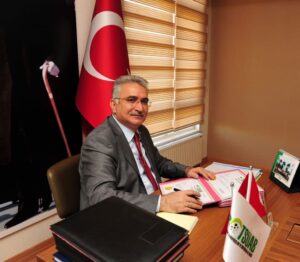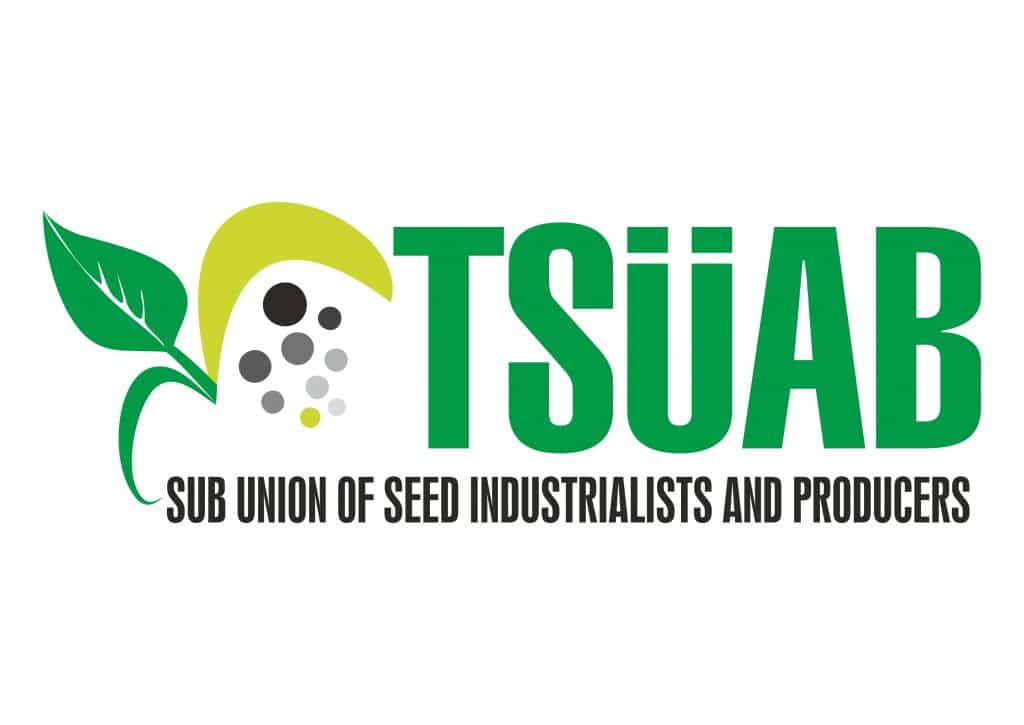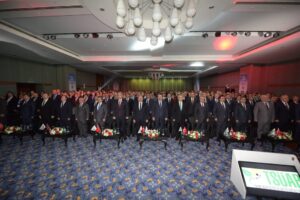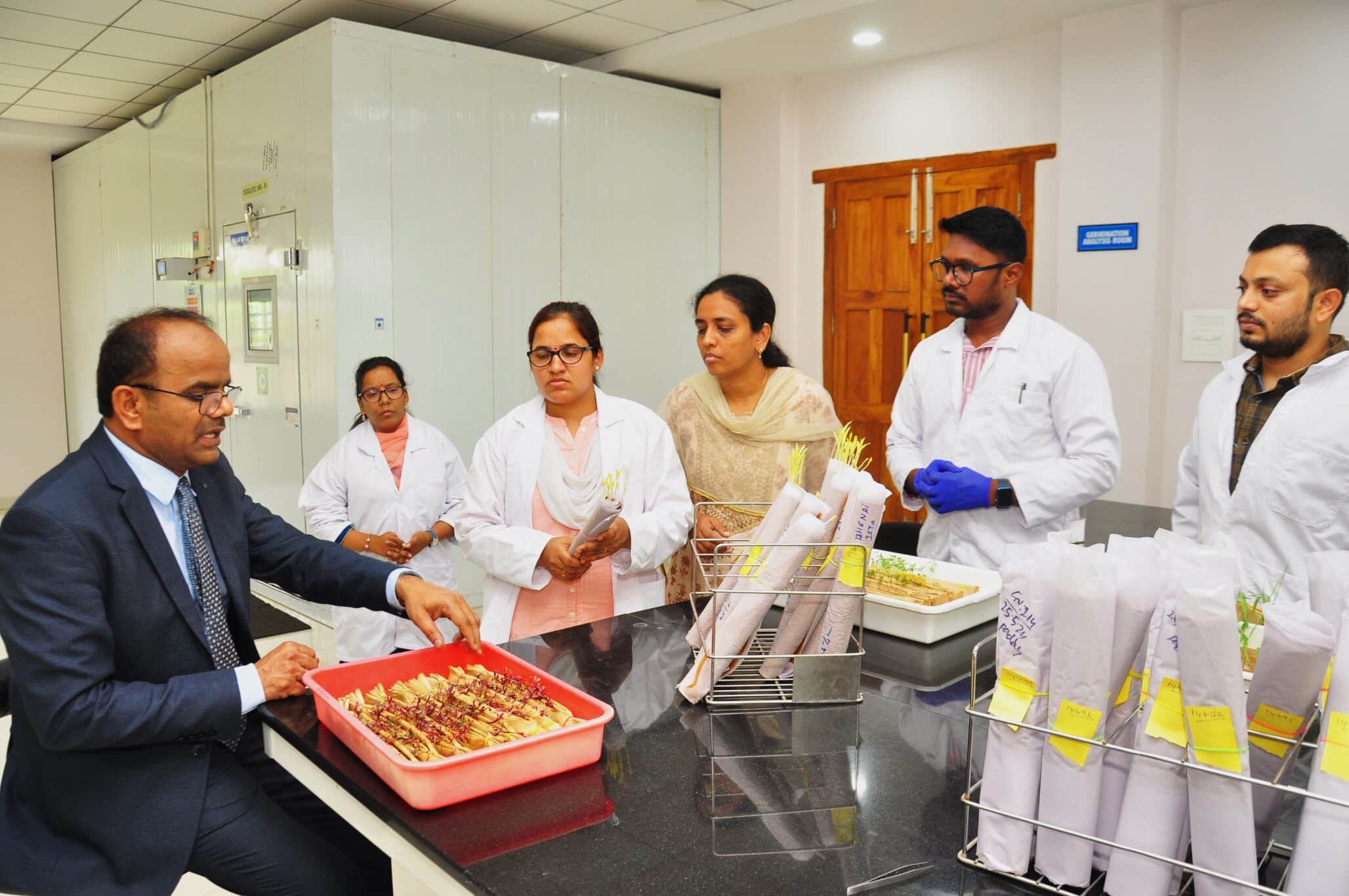With agricultural lands of more than 38 million ha and an agricultural production value of more than $34 billion USD, according to TURKSTAT data of 2016, Turkey is one of the prominent countries in the world with respect to agricultural production. Of 24 million ha arable lands, not counting the 14 million ha of meadow-pasture lands, 40 per cent is used for field crops, mainly cereals, 9 per cent for fruit and 2 per cent for vegetable production, whereas the remaining 10 per cent is composed of fallow lands. With respect to agricultural production value, field crops take the lead with a production value of $13.6 billion USD, followed by fruit species with a production value of 11.3 billion USD, and vegetable species with a production value of $9.1 billion USD.
According to 2016 data on production amounts of field crops in Turkey, cereal production, which reaches 27 million tons with wheat and barley production in the first place, is followed by sugar beet production (19.5 million tons), sweet corn (6.4 million tons), potato (4.8 million tons), onion (2.1 million tons), cotton (2.1 million tons), and sunflower (1.7 million tons). Out of a total of 29 million tons in fresh vegetable production, tomato ranks first with a production of 12.6 million tons, while melon and watermelon production ranks second with a production of six million tons in 2016.
In order to maintain a balanced and stabile development in agricultural production, whose outlines are given above, it is obvious that the country needs an internationally competitive seed industry, based on private-sector production, with a strong and sustainable infrastructure, and a high level of professional organization and corporate identity.
Recent history in the Turkish seed industry
The publication and enforcement of the first law on seeds (Law No. 308 on Registration, Control and Certification of Seed) in 1963, membership of Turkey to the International Seed Testing Association (ISTA) in the same year, and inclusion of the country in the OECD Seed Schemes in 1968 are recognized as very significant achievements for the development of the sector. However, despite these crucial steps, the seed sector, which continued to have almost a completely public-sector structure until the 1980s, had a very slow pace of development. Having realized this fact, decision-makers took radical decisions for the transformation of the sector, and thus the industry began to transform, thanks to legal and administrative regulations that started in mid-1980s. In these years, the government liberated imports of new and productive varieties and free market rules started to prevail in price-formation. The first professional institution in the sector, the Turkish Seed Industry Association, was also founded in the same period (1985). However, none of this development process was deemed sufficient by the leading companies in the sector. Therefore, along with the enforcement of the needed legal regulations by the Ministry of Agriculture upon initiatives that started in the first half of the 2000s, a second significant move for transformation started, which has brought the Turkish seed sector to these days.

Seed regulations in Turkey
The development process, picked up further speed with the foundation of the Turkish Seed Union (TÜRKTOB) by sector members in 2008 and seven sub-unions namely for Plant Breeders; Seed Distributors; Seed Growers; Seedling Producers; Sapling Producers; Ornamental Plant Producers and the Sub-Union of Seed Industrialists and Producers (TSÜAB). These seven sub-unions are members of TÜRKTOB through their elected representatives. Thus, significant advances are achieved in communication and collaboration among the stakeholders of the industry and the Arbitration Board, which was founded within TÜRKTOB and where all sub-unions are represented, and plays a mediatory role in problems among stakeholders.
Besides these significant achievements in the sector, Turkey also became a member of UPOV in 2007. Another law that is of particular interest to our sector is the Biosafety Law, which entered into force in 2010. According to the provisions of this law, it is prohibited to produce any genetically modified plant varieties in Turkey. Regarding the Biosafety Law, another point that relates to our sector is the rule of “0 (zero) tolerance” to “adventitious presence” applicable for seeds. Although there is no regulation on new breeding techniques in Turkey yet, several institutions and universities are carrying out research and development activities on this topic.
Potential of the Turkish seed sector
Thanks to the consequences of the policies implemented in the Turkish seed sector during the last few years, the subsidies provided for the production and use of certified seeds, and also thanks to the development of the private sector, certified seed production increases regularly each year. In this regard, with a production level of 957,000 tons of certified seeds, a capacity of sales of seeds to more than 70 countries, and a market size of more than $1 billion USD, the Turkish seed industry is among the top 10 seed countries in the world as of 2016.
The certified seeds produced in the country are mostly consumed in the domestic market while some of them are exported (mainly certified seeds of maize, sunflower, cotton and some vegetables). Seed exports by Turkey reached $154 million USD by the end of 2016. Seed imports, in turn, were worth $202 million USD by 2016. The difference between imports and exports is getting narrower each year in favour of exports.
Why is TSÜAB so important for the Turkish seed sector?
It is no doubt that TSÜAB and its members have played a major role in the evolution of the Turkish seed sector to its actual situation today. Founded in line with the provisions of the Seed Law, TSÜAB is a professional organization with a public legal personality, and all seed industrialists and producers operating in Turkey have to be a member of TSÜAB. As of September 2017, TSÜAB has 805 members. The main fields of activity of member companies of TSÜAB are plant breeding and variety development; execution of new plant variety adaptation and performance tests; registration or registry of new varieties; execution of variety protection applications; maintenance of varieties; production, processing, packaging, marketing, and distribution of pre-basic, basic and certified seeds; and importation and exportation of seeds.
Organs and Working Groups
According to the statute of TSÜAB, the sub-union has four components: 1) General Assembly, 2) Executive Board, 3) Supervisory Board, and 4) Disciplinary Board. While the General Assembly of TSÜAB gathers each year, general assemblies with elections are held once every two years. In these general assemblies, TSÜAB members, who have only one vote, elect members of the executive, supervisory, and disciplinary boards. The executive board gathers once a month, whereas the supervisory board gathers at least twice a year. The Secretary General of the sub-union and some other designated staff carry out the secretarial tasks of the organs of TSÜAB.
As the organization chart shows, TSÜAB has a rather extensively designed secretariat. As of September 2017, the secretariat employs a total of 12 staff, including the Secretary General; six employees, including the head of the technical unit, in the main service units; one legal advisor in the legal office, and four employees in auxiliary service units.
TSÜAB has Working Groups (WG), which have been carrying out activities since the foundation of the Sub-Union. According to its field of activity, each member company of TSÜAB can be a member of these working groups, which include cereals, industrial plants, vegetable, potato, edible legumes, and meadow pasture fodder crops and grass. Each group has its president, vice president and rapporteur. Working groups, which hold as many meetings as they need in a year, discuss the problems of the industry and report their views and recommendations for solutions to the executive board. These reports are used in meetings with the Ministry of Food, Agriculture and Livestock (MoFAL), the competent authority on seed production, and other public and private sector institutions.
The executive board and secretariat of TSÜAB have authority and responsibility to protect any right and interest of TSÜAB members, contribute to solutions to any problems among members, to contact with Turkish MoFAL and other national and international institutions, and to act on behalf of the Turkish seed industry in all issues and topics involving TSÜAB members, including administrative practices and preparation of relevant legislation.
Activities of the Secretariat
According to the decisions of the TSÜAB executive board, in line with the demands of members, the secretariat plans many activities and performs them in line with a business schedule. These activities can be summarized as follows:
- Establishment of a comprehensive communication with members is the most significant field of activity of TSÜAB. For that purpose, TSÜAB does not confine itself to one-to-one communication with members through phone, fax and e-mail, but it also makes use of all means of social media (Facebook, twitter, Instagram, etc.).
- The fast-growing Turkish seed sector has an increased need for trained people. Being perfectly aware of this fact, TSÜAB prepares since 2010 detailed internship programs of two months for prospective agricultural engineers that are likely to be employed in the seed sector. Each year, an average of 30 students benefit from this important opportunity.
- Since its foundation, TSÜAB has been organizing national and international workshops every year. Not only TSÜAB members but also representatives from relevant public organizations and institutions, non-governmental organizations, universities and other unions are invited to these meetings of two to three days where approximately 400-500 participants take part.
- Project-based activities, supported by the Ministry of Economy, are also among the prominent fields of activity of TSÜAB for its members. Within the framework of the Development of the International Competitiveness Program, members participating in projects are provided with training and trade delegation visits, participate in purchase delegations from abroad, and receive consultant support at the end of the project.
- Improvement of collaboration with international institutions is one of the themes of utmost significance since the foundation of TSÜAB. The sub-union is a member of the International Seed Federation (ISF) since 2011, Economic Cooperation Organization Seed Association (ECOSA) since 2012, and European Seed Association (ESA) since 2013. Whereas up to 2017 TSÜAB was represented in only two committees of ISF (Trade and Arbitration Rules Committee and Field Crops Committee), this year the Sub-Union has sent representatives to four additional ISF committees (Breeders Committee, Intellectual Property Committee, Sustainable Agriculture Committee, and Forage and Turf Committee). Many members of TSÜAB participate in annual meetings of ISF and ESA. Especially the members of the TSÜAB Executive Board participate in such meetings in order to maintain bilateral discussions on topics related to the Turkish seed industry. On the other hand, TSÜAB takes initiatives to ensure that TSÜAB members take part in different bodies of ESA. This is because the European seed market is highly important for Turkish seed companies. Representatives of TSÜAB also maintain communication with representatives of seed industries of Asia, particularly Russia and the various Turkic Republics, Africa, and the Middle East, in order to improve international collaboration.
- TSÜAB participates in national and international congresses, fairs, and other meetings on agriculture and seed production.
- TSÜAB pays due attention to relations with the media and public. Activities in this respect include press information meetings, newspaper articles, television programs, interviews and journal articles by the President and members of the Executive Board, and the secretariat.
Our challenge…
The TSÜAB is at the center of the Turkish seed industry. Based on the support of its members, TSÜAB is aware of the fact that it is one of the most important professional organizations in the Turkish seed industry. TSÜAB has so far made every effort to ensure that Turkish seed industrialists achieve a well-deserved position in the top of international seed market and will continue to make such an effort. This is because TSÜAB knows very well that Turkey has a seed industry with vast potential and has the capacity to conduct most comprehensive analyses and create solutions. In this respect, it is ready for any collaboration with not only the stakeholders in Turkey but also the international ones.
Where on the web: http://www.tsuab.org.tr/
Editor’s Note: Ahmet Müfit Engiz is Secretary-General of TSÜAB since March 2017. Before that he served 7 years as the General Secretary of the Turkey Seed Industry Association (TÜRKTED).













